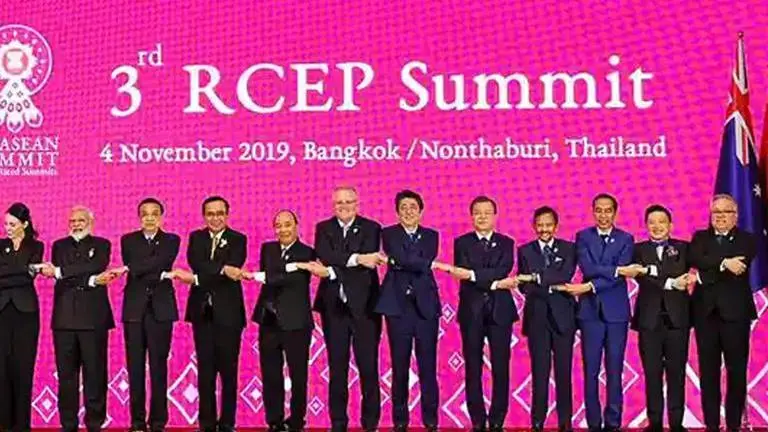Updated 3 November 2021 at 13:14 IST
Australia: RCEP trade deal involving 15 countries to take effect from January 2022
The Australian government stated that the Regional Comprehensive Economic Partnership (RCEP) trade agreement will go into force on January 1.
- World News
- 2 min read

The Australian government stated that the Regional Comprehensive Economic Partnership (RCEP) trade agreement will go into force on January 1, with the goal of facilitating trade liberalisation and economic integration throughout Asia and the Pacific, as per the reports of Kyodo News.
According to the statement released by the Australian government, after ratification by at least six ASEAN countries and at least three non-ASEAN countries, the RCEP will enter into force 60 days later. Australia and New Zealand ratified the agreement on November 2, 2021, paving the road for the RCEP to take effect on January 1, 2022. According to Kyodo News, New Zealand's minister of state for trade and export growth, Phil Twyford, confirmed the pact's approval by Wellington on Tuesday, calling it a step that will speed up the country's recovery from the coronavirus outbreak.
Businesses will be able to take advantage of RCEP's potential from early next year
Twyford also said that from early next year, businesses will be able to take advantage of RCEP's potential. According to him, this agreement will also allow the businesses to be better connected through regional supply chains, giving exporters greater stability in what remains an uncertain global environment. According to Kyodo News, he further stated that New Zealand and Australia's dual ratification of the ASEAN-led RCEP agreement reflects the strong partnership they share with ASEAN.
Australian Foreign Affairs Minister Marise Payne also confirmed by stating that the criterion has been met now that Australia and New Zealand have both ratified the deal, according to Nikkei Asia News. Brunei, Cambodia, Laos, Singapore, Thailand, Vietnam, Australia, New Zealand, Japan and China, according to the Australian trade ministry's website, have all ratified their RCEP participation.
Advertisement
The RCEP aims to eliminate tariffs on 91% of imports
The RCEP aims to eliminate tariffs on 91% of imports and harmonise laws on investment, intellectual property, and e-commerce, among other things. It also seeks to improve supply chain efficiency within the free trade zone, which accounts for around 30% of global output, commerce and population, according to Kyodo News. The Japanese government stated that the agreement will boost the world's third-largest economy's gross domestic product by around 2.7%.
Image: PTI
Published By : Rohit Ranjan
Published On: 3 November 2021 at 13:14 IST
